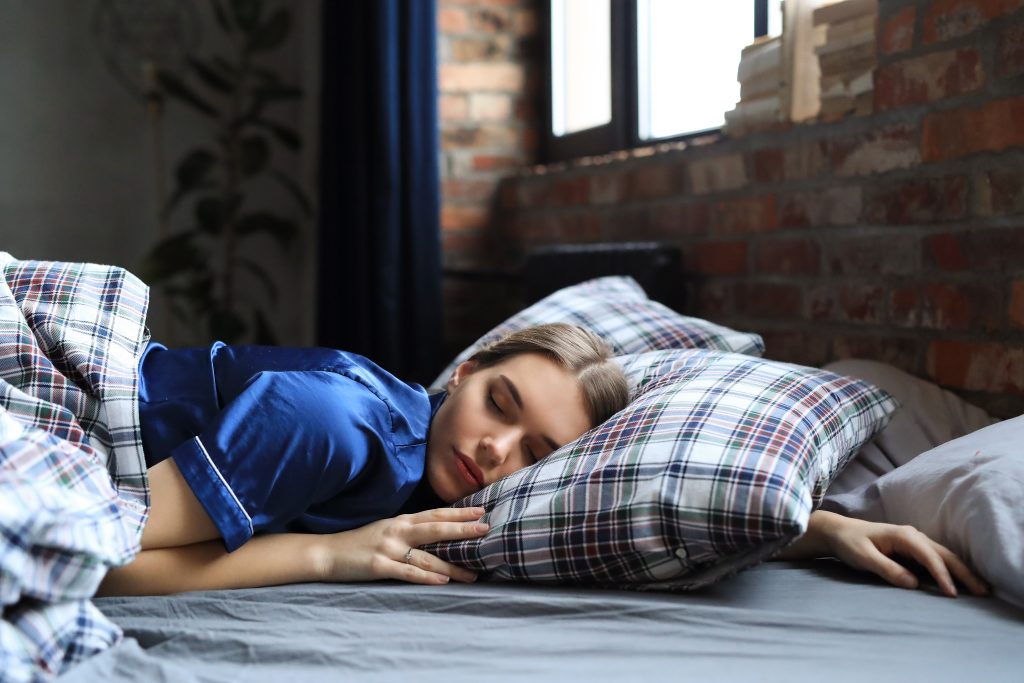These rules of sleep hygiene and essential tips will allow you to eliminate the behaviors that alter the quality and duration of sleep. Moreover, it will help you introduce those that will repair and consolidate it.
Look at the sun's light spectrum when you wake up

Looking at the sun in the early morning, when the ultraviolet index is at its lowest, is called Sungazing. This practice helps to resynchronize the circadian rhythm by giving to the pineal gland to wake up and relieve mental tension. But also to recharge the body to promote regeneration and improve sleep. Start to do it within an hour after sunrise and for 10 seconds to avoid damaging the eyes. It can be gradually increased by 10 more seconds per day with practice.
Do not drink any stimulants after 2 pm
Coffee, cocoa (dark chocolate), tea, sodas, and energy drinks are excitants, most of which contain caffeine or theine. These inhibit adenosine, a natural sleep aid, from working and accelerate brain function, heart rate, and blood pressure.
Avoiding them after 2 pm is preferable because their effects last 6 hours and more. Caution: even raw cocoa has a strong stimulating effect.

Avoid alcohol and cigarettes to sleep better

Alcohol has anxiolytic properties that make it easier to fall asleep. However, it fragments sleep in the second half of the night and disrupts REM sleep. Furthermore, the body does not fully recover from the night. That is why it is preferable to avoid alcohol at least 2 hours before bedtime. Moreover, regular alcohol consumption can also make sleep lighter. On the other hand, the nicotine in cigarettes has a stimulating effect on the nervous system. Indeed, it makes sleep of lesser quality, even if smoking is associated with relaxation, which can help to fall asleep.
Don't make a dinner that is too heavy or too light

A heavy dinner can disrupt sleep. However, don’t go to bed hungry; it can lead to night-time awakenings.
Adopt an anti-inflammatory and nutritious diet over the long term
An anti-inflammatory and nutritious diet is composed mainly of fresh fruits and vegetables (that are not processed or minimally processed). It excludes refined products such as sugar, processed or ultra-processed products such as certain ready-made meals, modern gluten, and poor-quality dairy products. For example, here is a few anti-inflammatory and nutritious diets par excellence: the raw food diet (also called “crudivore” diet), the Cretan (Mediterranean) diet, and the Seignalet diet. These diets will help the body fight inflammation, unclog its waste products, and activate its regeneration capacities.
Have a fixed meal schedule during the day
Meal schedules act on the brain through hormones such as hypocretin also called orexin. This hormone acts on eating behavior and sleep circuits. In addition, they help synchronize the circadian rhythm.
Exercise at the right time
Several studies have shown that regular physical activity, either on an occasional basis (ideally in the late afternoon) or throughout the day, increases sleep pressure. Moreover, it facilitates falling asleep, increases sleep efficiency, increases the duration of deep, slow-wave sleep, and decreases night-time awakenings. However, it should not be done during the 4 hours before bedtime. Indeed, it has an exciting effect by increasing body heat and releasing dopamine and adrenaline.

Choose a physical activity you enjoy because it will motivate you to be regular. However, be careful to practice sports in moderation, as overtraining can lead to burnout, which induces insomnia.
Eliminate screens and blue lights at night
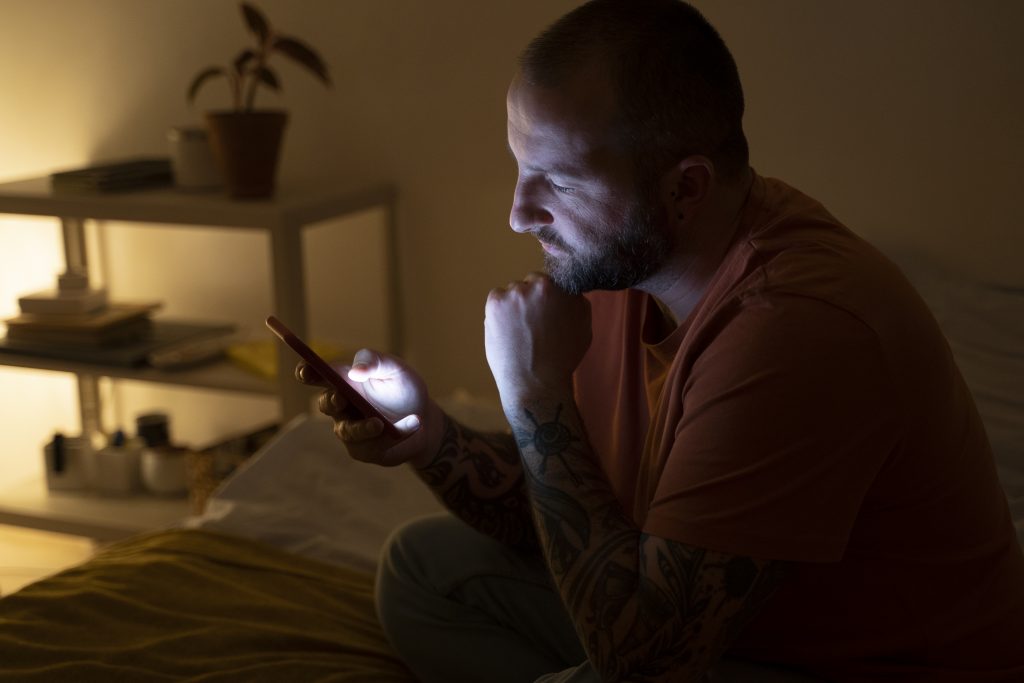
Blue lights disturb melatonin secretion in the evening. It is, therefore, essential to avoid screens from the end of the afternoon. However, if you can’t do otherwise, there is software for computers such as F.lux for Mac and PC. Furthermore, you can use the phone option “night shift” for iPhone and the “night light” mode for Samsung. These solutions are free and allow you to reduce blue lights. The Gunnar brand also offers anti-blue light glasses with several levels of protection.
Do relaxing activities 1 hour before bedtime
When our nervous system is overloaded, insomnia appears and lasts if we do nothing to repair and calm it.Therefore, it is necessary to integrate daily deep relaxation exercises, both physical and mental. Physical relaxation exercises include sophrology, stretching, Jacobson relaxation, and acupressure mats. Mental relaxation exercises include various forms of meditation, cardiac coherence, and other breathing techniques.
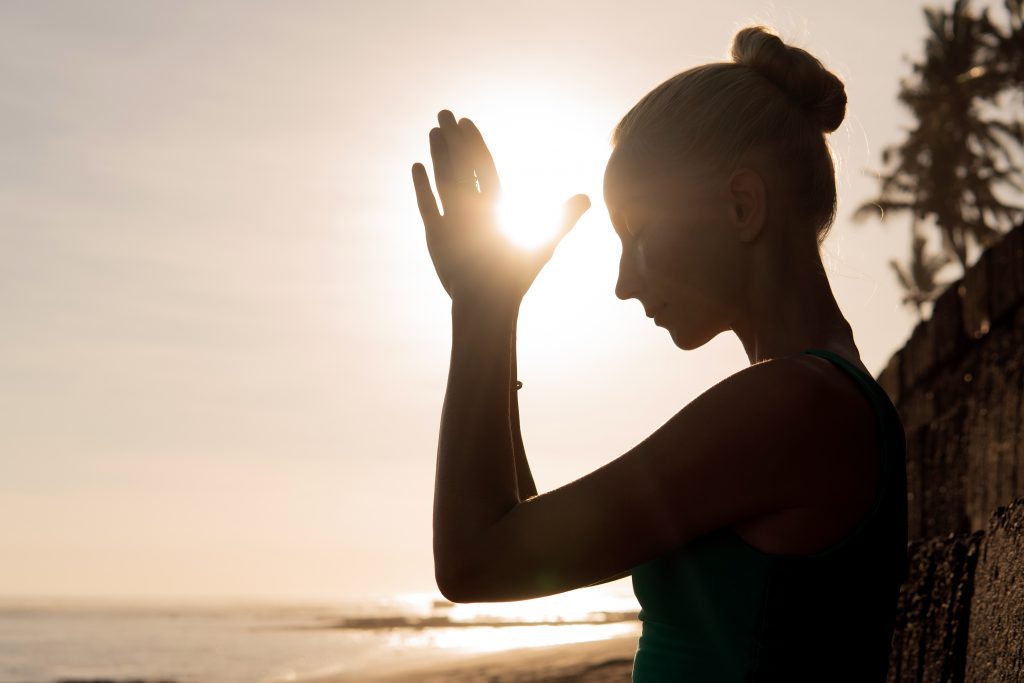
These techniques work well if they are integrated regularly. They will gradually calm and repair the nervous system. Sleep will be more difficult if we do not learn to calm our thoughts and ruminations at bedtime. Thus, relaxation decreases stress hormones, reduces inflammatory states in the body, and increases well-being hormones.
Sleep better in a healthy room
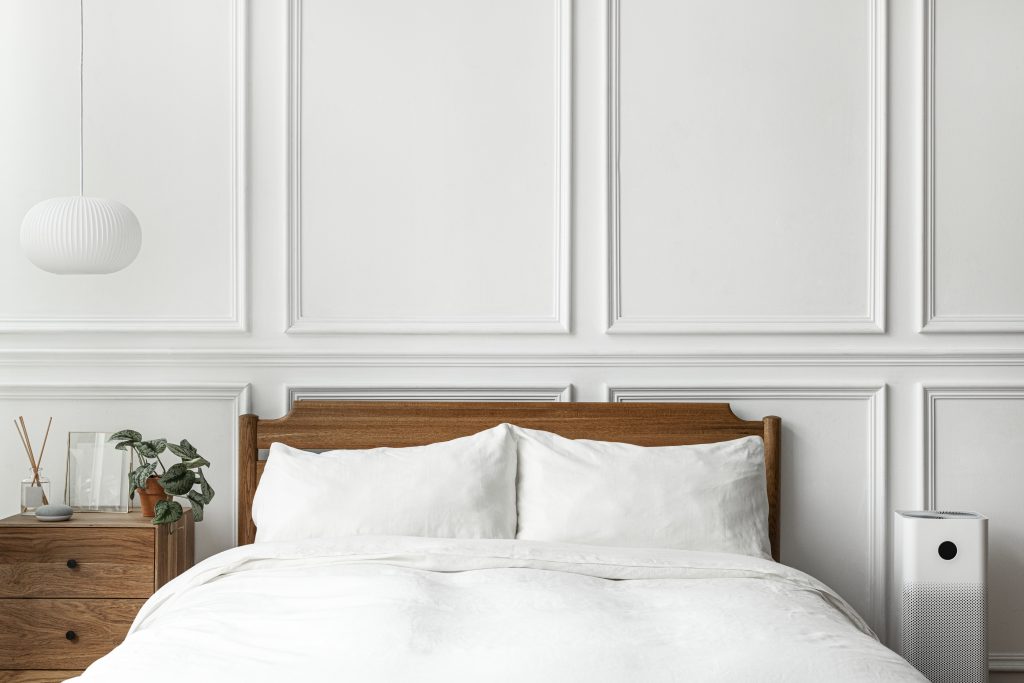
Artificial electromagnetic waves pollute a healthy bedroom. So, turn off your wifi, cellular data (4/5G), and Bluetooth, and turn off your devices or move them more than 180 cm away from your bed to avoid radiation.
Moreover, air your room every day to renew the air. Furthermore, you can invest in indoor plants, such as the Sansevieria, that purify the air. Also, you can use an air ionizer to generate many negative ions (anions). These ions are naturally present in nature that will neutralize the harmful positive ions (cations).
Finally, you can install an ultrasonic essential oil diffuser that will generate large negative ions of oxygen, which benefits our health. The essential oils of maritime pine or Atlas cedar are recommended to improve the air in the room.
Sleep in a serene and sufficiently dark room
Set up a room where you feel comfortable, calm and safe. Light pollution, especially blue lights, can disrupt melatonin production in the evening and thus disturb sleep. There are different levels of darkness. Indeed, some prefer semi-darkness to total darkness. It is up to you to find the level that suits you.
In the evening, dim the room with warm red lights that are less likely to disrupt the circadian rhythm. In addition, you can invest in a night mask, shutters, or blackout curtains to protect yourself from light pollution, especially in the city.
Regarding noise, some people need background noise, while others swear by absolute silence. It’s up to you to find the right atmosphere to sleep in. If you suffer from noise pollution in your environment, such as traffic, neighbors, etc., create a monotonous noise of low intensity (white noise). For example, you can use a ventilator or the noise of the water.
Sleeping with an ideal temperature of 18/19°C
The ideal temperature for sleeping is in the thermoneutrality zone. Indeed, the zone in which we can maintain our body temperature constant without spending extra energy.
The thermoneutrality zone is established between 30 and 32°C if we are naked and without a blanket. However, it is between 16 and 19°C if we are in pajamas and covered with at least one sheet.
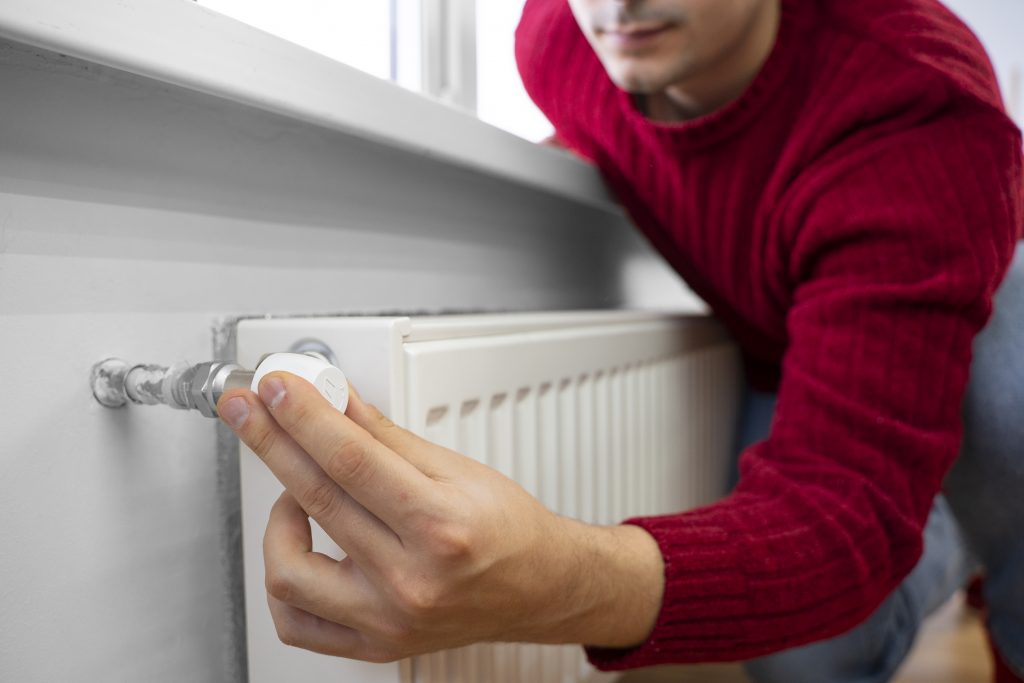
That’s why we say that for good sleep, we should sleep in a room at around 18/19°C. But as each person is different, it is advisable to test the temperature that suits you best. But don’t forget: in the evening, the body temperature naturally drops, which helps you fall asleep. So a room that is too hot will disturb a good night’s sleep.
Hide the time clock from the view
Seeing the hours tick by on your clock or alarm clock increases the anxiety of not sleeping. “Pleasure and joy influence synchronizing sleep rhythms.”
Have joyful activities and social contacts

On the one hand, pleasure and joy influence the synchronization of sleep rhythms through their stimulating effects in the daytime and self-healing. Indeed it makes sleep deeper in the evening. But on the other hand, depressed people spend more time lying down, which reduces the depth of sleep.
Moreover, an alteration of deep sleep has been observed in experiments of forced rest with decreased physical activity and social contact.
Stimulus Control: a tool for a better sleep
Stimulus control is the tool that will reinforce the association between bed and sleep rather than wakefulness. Indeed, insomniacs’ fear of not sleeping leads them to associate the bed with a situation of danger. That leads to chronic stress that keeps them awake in the bedroom.
Here are several tips for “making peace” with your bed:
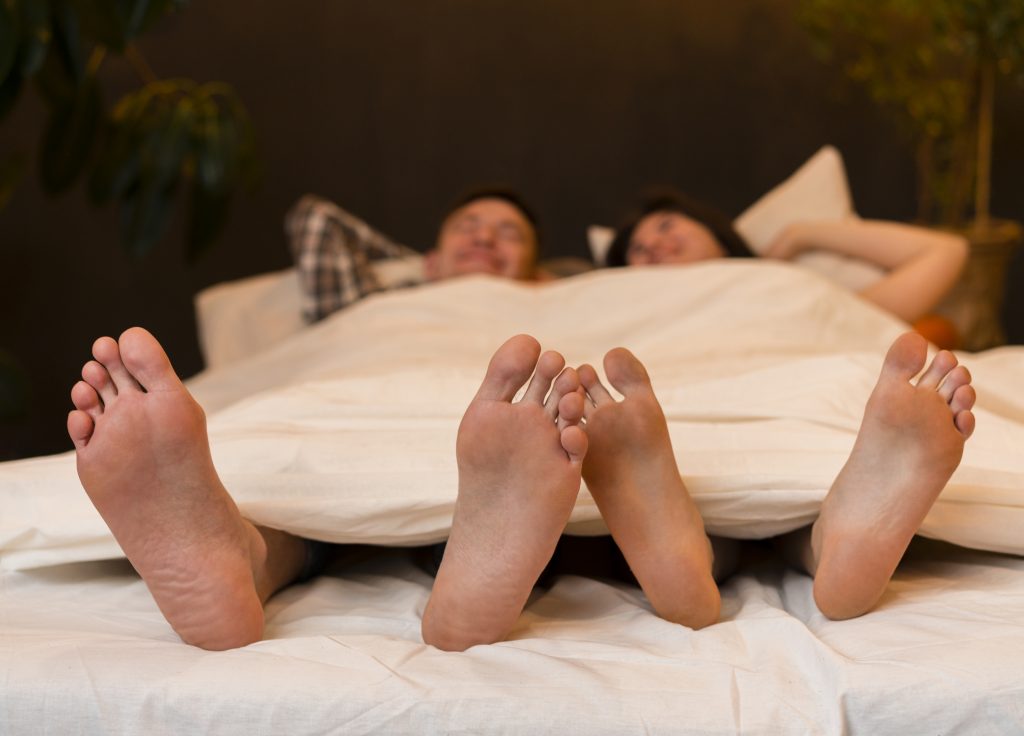
- Do not engage in arousing, physically and intellectually stimulating activities in the hours before bedtime.
- Use the bed only for sleeping and sex (don’t watch TV, eat, use the phone, work, etc.).
- Mark a transition from wakefulness to sleep by establishing a routine and rituals before bed: brushing teeth, getting into pajamas, checking the house, stretching, etc.
- Go to bed only when you are sleepy (yawning, rubbing your eyes, feeling cold, feeling very sleepy…).
- Get up at the same time each day, regardless of how much sleep you had the night before, to avoid jet lag.
- Avoid naps that are too long (more than 30 minutes) or too late (after 3 pm) during the day.
- Do not stay in bed waiting. Suppose you are still not asleep after 20 minutes. In that case, it is better to get up, go to another room and do a quiet activity (reading, listening to soft music, meditation, etc.) in a dimly lit environment while waiting for sleep. Return to bed when sleepiness returns. Repeat as often as necessary.
If you want to learn more about sleep, don’t hesitate to have a look on my dedicated website: Jeûne & Sens.
Would you like to discover more information about sleep?
Have a look at our other articles :

